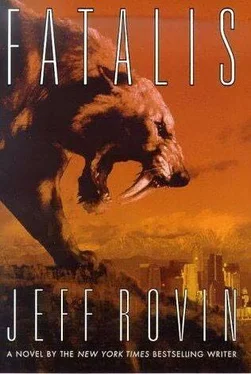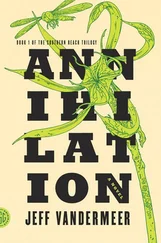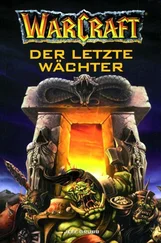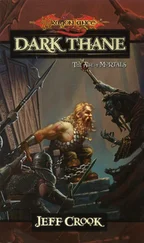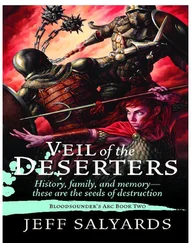Jeff Rovin - Fatalis
Здесь есть возможность читать онлайн «Jeff Rovin - Fatalis» весь текст электронной книги совершенно бесплатно (целиком полную версию без сокращений). В некоторых случаях можно слушать аудио, скачать через торрент в формате fb2 и присутствует краткое содержание. Жанр: Триллер, на английском языке. Описание произведения, (предисловие) а так же отзывы посетителей доступны на портале библиотеки ЛибКат.
- Название:Fatalis
- Автор:
- Жанр:
- Год:неизвестен
- ISBN:нет данных
- Рейтинг книги:3 / 5. Голосов: 1
-
Избранное:Добавить в избранное
- Отзывы:
-
Ваша оценка:
- 60
- 1
- 2
- 3
- 4
- 5
Fatalis: краткое содержание, описание и аннотация
Предлагаем к чтению аннотацию, описание, краткое содержание или предисловие (зависит от того, что написал сам автор книги «Fatalis»). Если вы не нашли необходимую информацию о книге — напишите в комментариях, мы постараемся отыскать её.
Fatalis — читать онлайн бесплатно полную книгу (весь текст) целиком
Ниже представлен текст книги, разбитый по страницам. Система сохранения места последней прочитанной страницы, позволяет с удобством читать онлайн бесплатно книгу «Fatalis», без необходимости каждый раз заново искать на чём Вы остановились. Поставьте закладку, и сможете в любой момент перейти на страницу, на которой закончили чтение.
Интервал:
Закладка:
The drizzle had stopped and the gray skies were a shade lighter than they'd been since morning. The rain left behind damp and darkened roads, an unseasonable chill, and a sense of calm that was somehow more ominous than reassuring.
Chapter Sixteen
On the way home Jim Grand decided to stop by the Hutash offices on Del Playa Drive to visit Joseph Tumamait. Maybe the paintings would intrigue him, maybe not Maybe he would talk, maybe he wouldn't. It was going to be tough, but it was long, long overdue.
The robust, thorny eighty-two-year-old Tumamait was a leading anthropologist, an expert on Chumash culture and one of Grand's mentors. Born in nearby Camarillo, the scientist was a UCSB graduate who had worked with Margaret Mead at the American Museum of Natural History in New York before returning to the west in 1965. Mead's involvement with the mental and spiritual health of primitive peoples had fascinated Tumamait, who passed his love of primitive psychology on to one of his own students, James Grand.
From the first, the men were very close friends and colleagues. Tumamait often risked his reputation to back Grand's revolutionary ideas about the relationship between pre-and post-Ice Age peoples and the monsters they hunted. The ideas were revolutionary in part because they were not based on anthropological evidence but on Grand's own experiences in the field. Grand had become the modern world's foremost expert on prehistoric weapons. Collecting and studying ancient samples, then learning to make his own. Grand became convinced that the hunt was far more than just a matter of food-gathering. The use of weapons required daily refurbishing of blades, careful storage of feathered shafts in clean, dry places, and adjustments dictated by the weather-arrow wood, spearhead bindings, and even the herbal sleeping potions used in drinking water were affected by rain and snow, heat and cold.
Grand believed that the people best-suited to create these weapons-and perhaps to use them-were the shamans, the same people who rendered gods, animals, and tableaux of the hunt on cave walls. But if the shamans among the Chumash and other peoples believed that animals were holy, how could they hunt and consume them?
The answer. Grand felt-and Tumamait agreed-was that the entire process was aspirational. Preparing for the hunt, the shamans and their caste slowly became the animals-in spirit at first, tracking them as an animal would, and then in the flesh when they consumed them. The animal spirit and meat were then passed from the shamans to the tribe as a sustenance and religion.
The idea of warrior-shamans was a revolutionary one, and not wholly embraced by either the scientific community or most of the surviving Chumash. But Grand had the best kind of evidence. He had made weapons and he had dwelt in caves and hunted for food. The entire process made the hunter intimate with the stones and the trees from which he crafted his weapons; with his own thoughts and spirit when he set out; and finally with the elements, the land, and his prey. It was a process about creation, life, death, and spirit. If a young man were not a shaman when he first became a hunter, be probably became one in time. Apart from telling tales to the young or infirm or those who didn't hunt, the only way to express what he was feeling was through art.
Many scientists believed that prehistoric people were simple people, interested solely in survival. They regarded shamans as eccentrics who were feared because they knew some medicine and they knew a few tricks. Grand didn't agree, and Tumamait was his greatest advocate.
Then, seven years before-while Grand was working with the Smithsonian-Tumamait went up to one of the caves where a hiker had found pottery. While he was resting by his stone campfire, Tumamait was visited by the Great Eagle. The scholar later said the Chumash god gave him a mission: to protect the Chumash heritage by protecting the earth. The vision was so compelling that Tumamait came back to Santa Barbara, resigned his professorship, and put both his life savings and his passion into Hutash .
Grand understood how that had happened. He had felt the presence of spirits many times in the caves. They always came in the dark, when you were alone, when the senses were alert and the mind was open and undistracted. Sometimes they kissed the soul, sometimes they were an eerie prickle. But Grand had never been moved the way Tumamait had-perhaps, Grand suspected, because he approached experiences like these with the mind and not with the spirit. There were fewer roadblocks getting to the soul.
Tumamait's relationship with Grand changed after the elder's vision. He withdrew emotionally from those who were not Chumash. He tried to maintain his relationship with Grand until the young anthropologist began mapping the Santa Ynez Mountains and discovering new caves. Tumamait had come to regard the paintings as a resting place for the gods. To disturb them was to put the needs of men before the needs of the spirit world. He could not endorse that, nor could he share his insights with those who did.
However, Tumamait did not entirely close the book on the relationship. He also wrote, "Sometimes the gods test us. If they test you, then you will understand, as I have, that we are not masters but servants."
Because they had been so close, Grand always hoped there might be a way to reconnect at some time on some level short of a deific trial. Possibly through a Chumash find, one that would excite the anthropologist that was still somewhere inside Joseph Tumamait One that would convince him of something Grand had always believed, that being Chumash-or any people, for that matter-was a matter of conviction and dedication, and not of blood.
Perhaps the tunnel art was it.
Hutash became an influential environment organization.
Their chief rivals were powerful oil interests, the construction industry, and transportation groups that used shell organizations to channel money into civic improvements, political campaigns, University of California scholarships, United States Geological Survey research, and other groups and causes. The implicit goal of these donations was to remind Southern Californians that-as a Caltrans executive had once put it-it was not always possible to grow the quality of life without the land to grow it on. Like his ancestors, Tumamait had been able to slow but not stop the encroachment of what he called the Haphaps -the destroyers. There were even those at Hutash who believed that Grand's grant was given for two reasons. First, so that Chumash cave sites could be identified in order for housing construction to be undertaken without damaging them. And second, to strike at Tumamait by engaging one of his former star pupils. Grand didn't know if any of that were true. All he did know was that the more sites he found, the more Chumash caves and former dwellings would be protected now and for all time.
Hutash's offices occupied the top floor of a modest, three-story building that overlooked Window to the Sea Park in Isla Vista. The tan walls were decorated with turn-of-the-century photographs of Chumash people and settlements. The only artifacts were wall hangings and wood carvings that had been made by modern-day Chumash.
The tall, bald-headed Tumamait received Grand immediately. The men hadn't seen one another since Rebecca's funeral.
Grand was openly happy to see his mentor. Tumamait's welcome was courteous, with a hint-just a hint-of satisfaction in the heavy-lidded eyes. The Chumash elder obviously knew something that Grand did not. The men embraced briefly.
" Hyvasti ," Grand said, using a traditional Chumash greeting.
" Petaja ," Tumamait said, a formal expression of gratitude. "I thought you might come."
Читать дальшеИнтервал:
Закладка:
Похожие книги на «Fatalis»
Представляем Вашему вниманию похожие книги на «Fatalis» списком для выбора. Мы отобрали схожую по названию и смыслу литературу в надежде предоставить читателям больше вариантов отыскать новые, интересные, ещё непрочитанные произведения.
Обсуждение, отзывы о книге «Fatalis» и просто собственные мнения читателей. Оставьте ваши комментарии, напишите, что Вы думаете о произведении, его смысле или главных героях. Укажите что конкретно понравилось, а что нет, и почему Вы так считаете.
